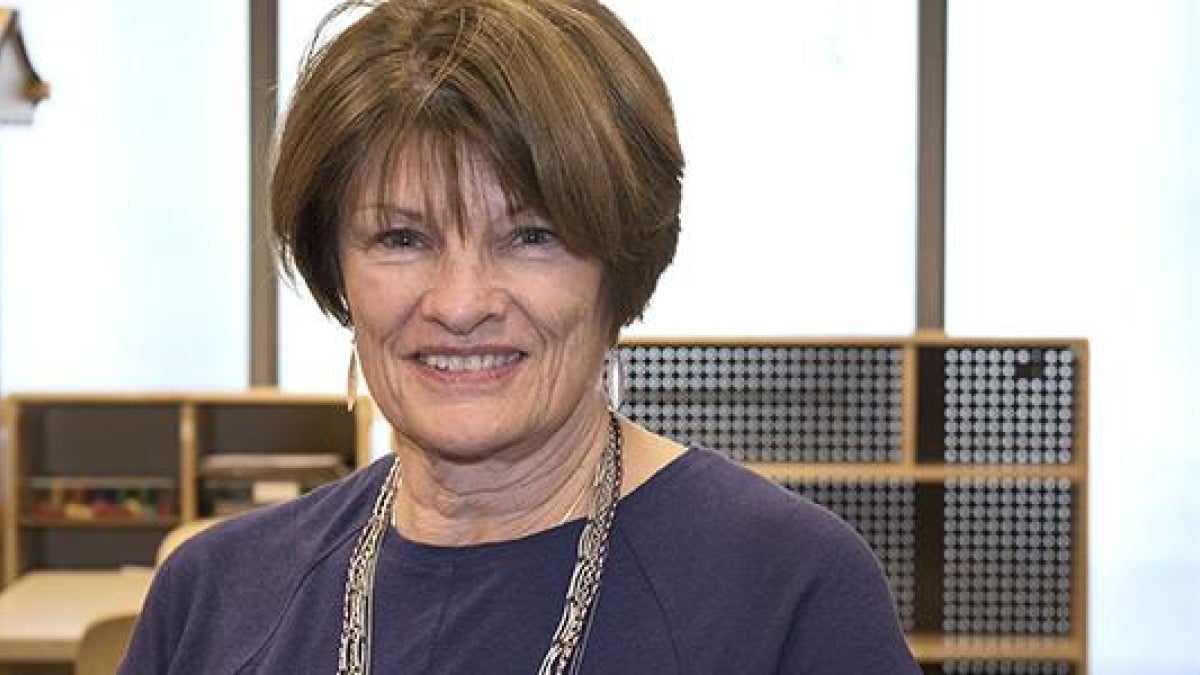Health Solutions professor earns top honor in the speech, language and hearing science field

Shelley Gray, a professor in ASU's College of Health Solutions, has published more than 70 peer-reviewed papers, served on many ASHA boards and committees, mentored dozens of doctoral students and junior faculty and has earned 17 prior awards for her research, teaching and professional leadership.
Shelley Gray, a professor of speech and hearing science at Arizona State University’s College of Health Solutions, has been awarded the Honors of the Association from the American Speech-Language-Hearing Association (ASHA), the nation’s premier professional organization for speech, language and hearing science.
Honors of the Association is ASHA’s most prestigious award and recognizes significant contributions to speech, language and hearing science throughout the recipient’s career.
It is recognition Gray has rightly earned, said her colleague Julie Liss, an associate dean and professor of speech and hearing science at the College of Health Solutions.
“Shelley has been phenomenally successful in her research agenda, she’s been an outstanding mentor to her students — many of whom have gone on to do great things — and she’s a visionary who has represented the field well,” Liss said.
During her years as a college professor, Gray has published more than 70 peer-reviewed papers, served on many ASHA boards and committees, mentored dozens of doctoral students and junior faculty and has earned 17 prior awards for her research, teaching and professional leadership.
Currently, she heads the college’s Child Language and Literacy Lab (CHILLL), which conducts research on oral language, early literacy, reading and working memory development and disorders in children and adolescents. From this research, the lab develops assessments, curricula and professional development training that improve children’s learning and academic success. Among other accomplishments, Gray and her ASU colleague Jeanne Wilcox, the Nadine Mathis Basha professor in early childhood at the Mary Lou Fulton Teachers College, in conjunction with a large research team have developed and tested a curriculum called Teaching Early Literacy and Language (TELL) for teaching oral language and early literacy skills to preschool children with and without developmental speech and language impairment.
Although the TELL curriculum is still in its research edition, Gray said, “We’ve moved the field forward in demonstrating that a high-quality Tier 1 curriculum can improve the oral language and early literacy skills of young children.” Gray added that several published studies have followed cohorts of children enrolled in preschool from early childhood into adulthood.
“We have seen that children who attend high-quality preschool programs show improvements not only in academics, but also in their life satisfaction, their health and their employment after they leave school,” she said. “The positive impact is lifelong.”
The CHILLL lab has also conducted research into children’s working memory with an eye toward helping educators tailor instruction to a child’s working memory's strengths and weaknesses to improve learning. In addition, through the Child Language and Literacy Translational Team in the College of Health Solutions, she leads a community-based Project ECHO team that provides professional development training for early childhood educators and caretakers throughout Arizona.
Gray began her professional career as a school-based speech-language pathologist and has continued to contribute to the field in many ways, including through the editorial direction of Language, Speech, and Hearing Services in Schools, the top journal for school-based pathologists.
“This publication is widely read,” Liss said. “The articles Shelley solicited and published elevated that journal’s status and utility to clinicians working in the field.”
A highly competitive award, ASHA’s Honors of the Association requires nominees to be sponsored by three other association members who themselves have earned Honors of the Association. The application requires copious documentation on the nominee’s achievements. This documentation must demonstrate that the nominee’s contributions have enhanced the profession itself.
“I was very fortunate to choose speech-language pathology as a career,” Gray said. “It combines a love for science and for helping people.”
It’s also a field that has allowed her to work collaboratively with many fellow researchers and research teams to significantly improve health outcomes for children.
“By working on these interdisciplinary, collaborative research teams, we’ve been able to accomplish studies that have much greater impact than anything I could ever do by myself,” Gray said.
Regarding her thoughts on receiving this honor, Gray said, ““I’ve looked up to the people who’ve earned this award as pioneers and leaders in our field. To be considered among these leaders is a true honor.”
More Health and medicine
College of Health Solutions program doing its part during Salute to Service
It wasn’t always easy for Marine veteran Chuck Hale when he first returned to civilian life. But he’ll never forget the help he…

What makes human culture unique?
Why is human culture — the shared body of knowledge passed down across generations — so much more powerful than animal cultures?“…

ASU honors students work on HPV research as part of Barrett College's largest-ever group thesis
Not every undergraduate student comes across the opportunity to do research as part of a team. Even fewer have had the chance to…